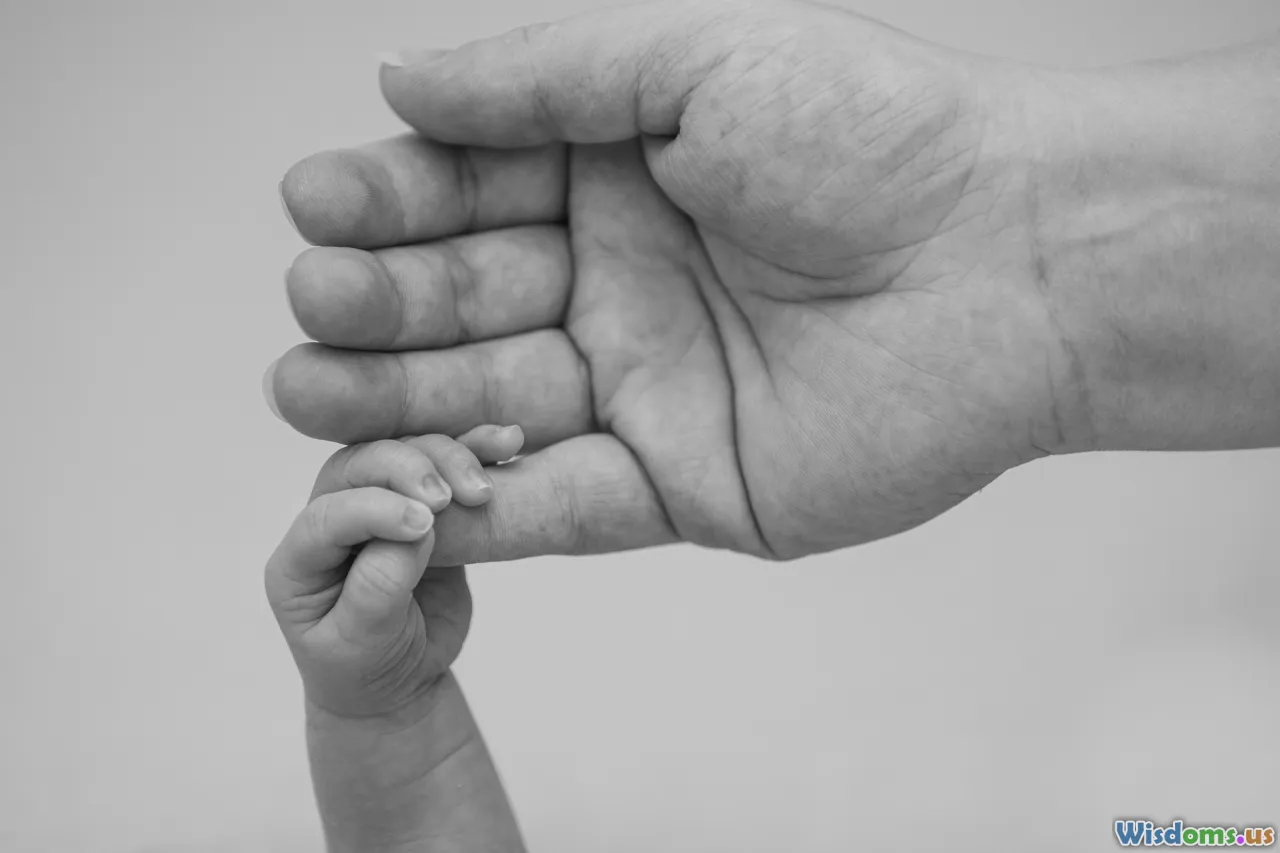
Ten Inspirational Weight Loss Stories That Defy All Odds
15 min read Ten powerful stories of individuals who overcame unique challenges to achieve life-changing weight loss. (0 Reviews)
Ten Inspirational Weight Loss Stories That Defy All Odds
In every corner of the world, people battle the scale—fighting against not just physical challenges, but also deeply ingrained habits, social pressure, health setbacks, and skepticism from others. To embark on and persevere through a transformative weight loss journey demands courage and resilience. Here are ten truly extraordinary accounts of individuals who faced daunting obstacles, upended old narratives, and emerged stronger. These stories aren’t simply about dropping pounds; they showcase unbreakable spirit and the limitless capacity for change embedded in us all.
From Chronic Illness to Champion: Lisa's Path

When Lisa, a 42-year-old from California, was diagnosed with Hashimoto’s thyroiditis at age 30, her doctors warned her about the likelihood of sluggish metabolism and accompanying weight gain. Within five years, she gained over 70 pounds despite trying various diets and workout routines. Frustration ran high, but giving up wasn’t an option for Lisa.
She started working closely with an endocrinologist who helped her restructure her diet around anti-inflammatory foods—think lean proteins, leafy greens, gluten-free grains, and minimal processed sugars. Lisa began tracking her vitamins, particularly vitamin D and selenium, and embraced a low-impact exercise routine: swimming three times a week. Not only had she lost over 80 pounds by her 40th birthday, but she also became a vocal advocate for chronic illness awareness on social media, inspiring thousands who thought their conditions doomed them to failure.
Tip: Collaborative, multidisciplinary healthcare (doctors, nutritionists, physical therapists) can turn impossible odds into manageable challenges.
Beating the Genetic Lottery: Mark's Marathon Victory

After spending most of his adult life classified as "obese," Mark was repeatedly told that his familial history—both parents had diabetes and heart disease—would make losing weight nearly unattainable. At age 48 and 320 pounds, his wake-up call came when he could not keep up with his grandson in the backyard.
Mark started walking just five minutes a day. Soon, he graduated to a jog-walk routine and made it his mission to finish a full marathon within two years. He learned to cook at home and experimented with whole-grain substitutes and plant-based dishes, limiting processed carbs and sugary drinks. In his first marathon at age 50, he crossed the finish line 110 pounds lighter, with his family cheering him on. Today, Mark volunteers at his local running club, supporting newcomers who feel genetics have stacked the deck against them.
Actionable Advice: Focus on sustainable lifestyle changes and movement you enjoy; even genetics can be outpaced by persistence.
Triumph Over Trauma: Rina Rediscovers herself

Weight gain had always been Rina's mechanism for masking childhood trauma. She spent her twenties in a cycle of binge-eating and shame. In her thirties, a mental health professional introduced her to trauma-informed therapy—an approach that not only addressed her emotional scars but also her self-sabotaging eating patterns.
Rina paired therapy with journaling and gentle movement, like yoga and walking. The pounds come off steadily: over three years, she lost 92 pounds. More valuable than her new body was her renewed relationship with herself. "I learned not to use food to fill a void, but to nurture myself from the inside out," she writes in her memoir.
Insider Insight: Healing emotional wounds is often a key (and underrated) component of lasting weight loss.
Overcoming Cultural Expectations: Priya’s Balancing Act

When Priya moved from Mumbai to London, she discovered a new world of convenience foods and relentless work schedules. Between traditional expectations to host lavish meals for family and her own career ambitions, Priya’s lifestyle became increasingly sedentary. By 38, she weighed 240 pounds.
Instead of giving up her beloved Indian dishes, Priya started modifying recipes: switching to baked samosas, increasing the ratio of vegetables to rice in biryanis, and mastering low-oil curries. Her family joined weekend walks in local parks, turning exercise into a social occasion.
After shedding 90 pounds within two years, Priya began hosting healthy-cooking workshops for her South Asian community. Her story underscores the importance of adapting—not abandoning—your cultural heritage for health.
Tip: Cultural traditions can inspire creativity in the kitchen, offering both enjoyment and nutrition.
Accountability Revolution: Tom and the Power of Peer Support

Tom, a high school teacher in rural Missouri, tried various diets, but always relapsed after making initial progress. The turning point? He joined a local “Biggest Loser” group at his school. Weekly weigh-ins, group recipes, challenges, and heartfelt conversations fostered a sense of camaraderie.
Tom discovered his real motivation wasn’t fear of diabetes, but accountability to his friends. The group organized after-school walks, learned new recipes from one another, and collectively lost over 700 pounds in a school year—with Tom personally dropping 85 pounds. Today, he's the group’s motivational coordinator. The real heroism lies in showing up for others as much as for yourself.
How-to: Seek out supportive communities—with accountability, shared goals, and honest connection—for a far greater chance at long-term weight maintenance.
Slow and Steady Wins: Miriam's Five-Year Journey

As a lifelong "yo-yo dieter," Miriam believed rapid, dramatic results were the only measure of success. Countless failed systems left her discouraged.
On her 50th birthday, she made a radical shift: focusing not on losing weight, but on gaining new habits. She added one sustainable change every few months—starting with a daily salad, then exploring meal prep, then reducing sugary beverages. She weighed herself only once a month to emphasize trend over daily fluctuations.
Four years later, Miriam has maintained a 60-pound loss without feeling deprived or obsessed. Her story is a testament to patience: improvement outpaces perfection each and every time.
Comparison: Gradual, lifestyle-based changes show higher long-term success rates compared to restrictive crash diets, according to multiple studies (e.g., NIH, 2021).
Defying Age Limits: Samuel’s Story at Seventy

Samuel, a retired engineer, believed age dictated capability. After his 70th birthday, a heart scare motivated him to reconsider. Working with his doctor, Samuel started on short neighborhood walks, progressing to yoga and swimming.
He learned about portion control and became passionate about Mediterranean cuisine, celebrating plant-based foods, nuts, and heart-healthy fats. Over two years, Samuel lost 65 pounds—proving not just to himself, but to his skeptical peers, that it’s never too late. Now, at 74, he gives talks at local senior centers and leads gentle fitness classes for ‘active agers.’
Pro Tip: It’s never too late—new routines at any stage can boost health, mobility, and confidence.
Surpassing Disability: Jasmine’s Wheelchair Breakthrough

Jasmine, paralyzed below the waist from a car crash at sixteen, was told that weight loss would be exceptionally difficult. At 28, she decided to challenge that narrative after years of frustration and secondary health conditions.
Working with an adaptive fitness trainer, Jasmine began upper body strength circuits and chair-based cardio exercises. Nutrition adjustments, including portion control and more fresh produce, followed. Over three years, Jasmine lost 75 pounds and significantly improved her cardiovascular health. Today, she shares her story with young people with disabilities, promoting adaptive fitness resources and advocacy.
How-to: Look for trainers and programs specialized in adaptive fitness; modification is empowerment, not limitation.
Surviving Postpartum Setbacks: Sara’s Return to Self

Postpartum depression, coupled with sleep deprivation and little time for self-care, made Sara’s weight creep higher after her second child. At her lowest, she felt isolated and ashamed, believing she had to choose between motherhood and personal well-being.
Sara tapped into maternal support groups online, where she found advice about sleep-friendly meal prep and free baby-and-mom fitness classes. She focused on consistency, not intensity—simple walks with the stroller, evening stretching, and a gradual inclusion of more protein and veggies in family meals. Over 18 months, Sara lost 55 pounds and rediscovered her sense of self—and joy in motherhood. Her honesty encourages other moms to seek help and abandon all-or-nothing thinking.
Actionable Advice: Postpartum journeys benefit from gentle, community-based support and accepting gradual progress.
From Food Addiction to Food Freedom: Kevin’s Battle

Kevin’s relationship with food went well beyond overeating—it blurred into addiction. Secret binges, intense shame, and isolation dominated his twenties. Real change began only when he acknowledged the parallel between food addiction and other forms of substance abuse.
Kevin attended twelve-step meetings for overeaters, gained a sponsor, and began cognitive behavioral therapy. He learned to distinguish real hunger from emotional triggers and to cook for himself. Five years in, Kevin has maintained a 120-pound weight loss—thanks not to willpower alone, but to structured recovery and ongoing self-accountability.
Analysis: Many weight loss stories begin with addressing emotional triggers first—habit and environment, not just willpower, drive success.
Each of these journeys defies stereotypes: age, culture, mental health, disability, and genetics need not be barriers to transformation. The underlying message is clear—no challenge is insurmountable when met with the right mindset, tools, and support. As you chart your own path—or cheerlead someone else—draw inspiration from the endless capacity for change these stories reveal. Sometimes, the odds aren't just beaten—they're remade entirely.
Rate the Post
User Reviews
Popular Posts

















